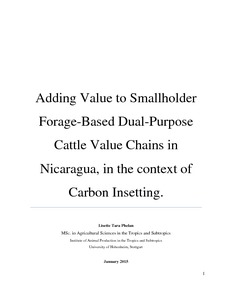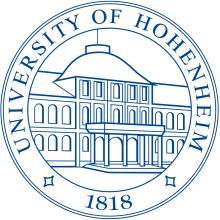Resource information
The thesis explores the extent to which payment for the ecosystem service of carbon sequestration
provided in a value chain context, through an innovative climate change mitigation and adaptation
strategy known as 'carbon insetting', could generate 'win-win' outcomes for all actors.
Drawing on examples of where the concept of carbon insetting has been adopted in coffee and cocoa value chains in Mexico and Honduras respectively, the thesis investigated the feasibility of
providing a payment for ecosystem services (PES) where there was an explicit aim to generate social, economic, and environmental and productivity benefits.
Taking the dual-purpose cattle value chain in Nicaragua as a case study, the thesis used a mixed methods approach to assessing the current climate change scenario faced by actors in the value chain, and in analysing incentives to directly engage in or facilitate strategies leading to adaptation and mitigation of climate change impact. A household questionnaire was administered to a sample of 40 smallholder farmers, while a diverse range of national as well as international public and private sector actors were consulted through key informant interviews.
The results of the study indicate that while smallholder farmers in Nicaragua are most vulnerable
to climate change, the ripple effect as regards impact is felt by the value chain as a whole, and there is growing consensus among actors as regards the need to work together in identifying and
implementing innovative PES and climate change adaptation and mitigation strategies with the capacity to generate shared benefits.
Linking PES scheme outcomes to willingness to pay (WTP) and accept (WTA) payment for service provision, the thesis evaluates the scope for carbon insetting, in particular, to positively impact on and contribute towards the improved livelihood security and sustainability of the primary link in the value chain in Nicaragua - smallholder farmers engaged in dual-purpose cattle production.



